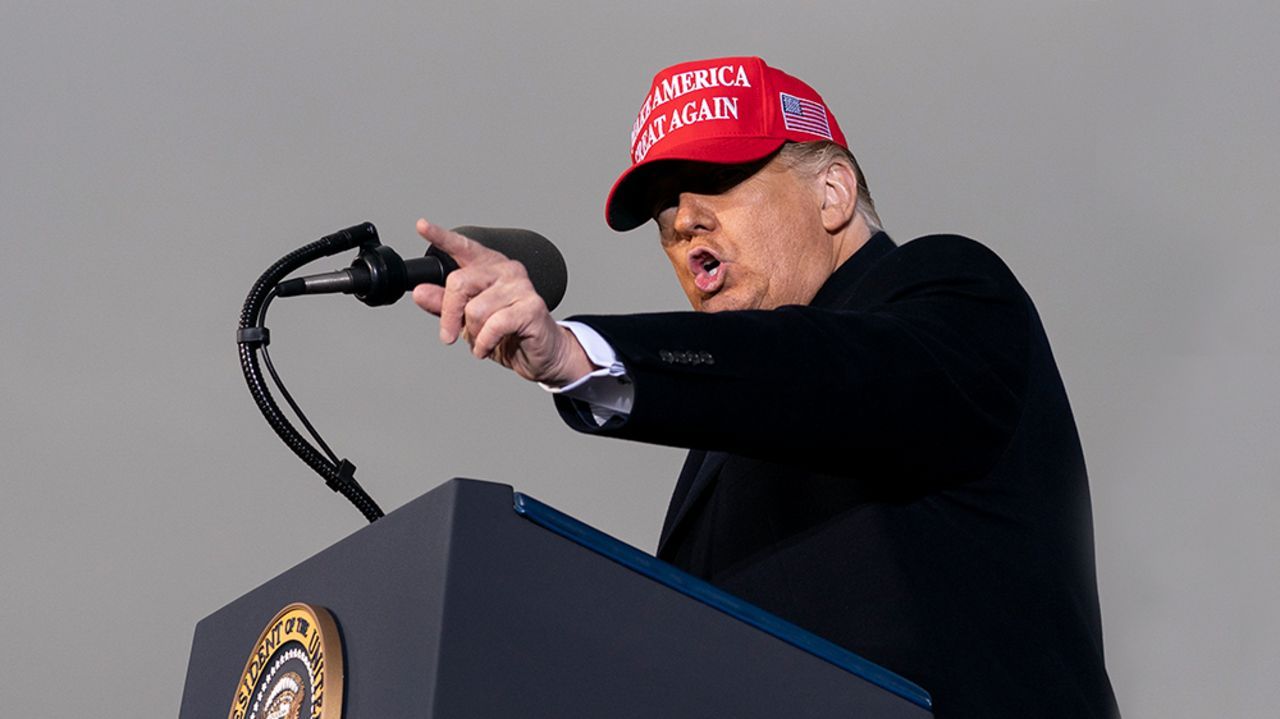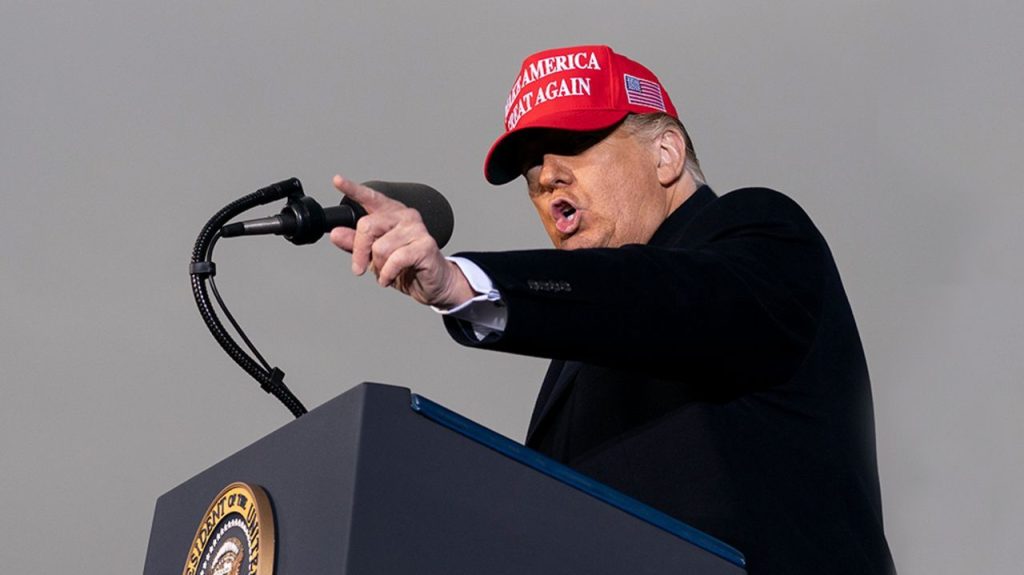
Appellate court rejects Trump’s claim that he cannot be prosecuted for seeking to overthrow the 2020 election
By John Burton.
On Tuesday, a panel of the Court of Appeals for the District of Columbia Circuit rejected former president Donald Trump’s claim that he cannot be prosecuted for attempting to overthrow the 2020 election by lying about supposed voter fraud, fabricating slates of phony electors, pressuring Vice-President Mike Pence to reject valid electoral votes, and finally, inciting a mob on January 6, 2021 to attack the joint session of Congress that was certifying the election.
The decision is “per curiam,” meaning all three judges on the panel share authorship equally. This is particularly notable because one, Karen LeCraft Henderson, was nominated by Republican President George H. W. Bush and has been on the D.C. Circuit for 34 years. The other two judges are Biden nominees, Florence Y. Pan and J. Michelle Childs.
Their detailed 57-page opinion methodically dissects and refutes Trump’s arguments, beginning with Marbury v. Madison, the famous 1803 Supreme Court decision establishing the federal judiciary as a co-equal branch of the US government. Quoting Marbury, the judges wrote that the president “‘cannot at his discretion sport away the vested rights of others.’”
The judges further wrote:
“Former President Trump’s alleged efforts to remain in power despite losing the 2020 election were, if proven, an unprecedented assault on the structure of our government. He allegedly injected himself into a process in which the President has no role—the counting and certifying of the Electoral College votes—thereby undermining constitutionally established procedures and the will of the Congress.”
Focusing on the crimes alleged in the indictment, the judges ruled:
“We cannot accept former President Trump’s claim that a president has unbounded authority to commit crimes that would neutralize the most fundamental check on executive power—the recognition and implementation of election results.”
Quoting from Article II of the Constitution, the decision states:
“It would be a striking paradox if the President, who alone is vested with the constitutional duty to “take Care that the Laws be faithfully executed,” were the sole officer capable of defying those laws with impunity.”
The opinion is replete with such ringing affirmations of bourgeois democratic principles, framing the conclusion:
“At bottom, former President Trump’s stance would collapse our system of separated powers by placing the president beyond the reach of all three branches. Presidential immunity against federal indictment would mean that, as to the president, the Congress could not legislate, the executive could not prosecute and the judiciary could not review. We cannot accept that the office of the presidency places its former occupants above the law for all time thereafter.”

Because of the pending appeal, the trial judge, Tanya Chutkan, took the jury trial set for March 4 off of her calendar. But in an unusual order compressing the normal time limits and procedural options, the D.C. Circuit gave Trump only until Monday, February 12 to petition the Supreme Court for a stay. Otherwise, Judge Chutkan will be free to set a new date for the start of trial.
The scheduling order specifically denies Trump the option of stalling proceedings further by first petitioning to the D.C. Circuit “en banc” before going to the Supreme Court, which could have added months to the timetable.
Although the Supreme Court is dominated by six right-wing justices, three of whom were nominated by Trump, there are countervailing concerns arising from differences within the ruling elite about how to best confront its deepening crisis. There can be no reliable prediction about Supreme Court intervention at this stage of the Trump prosecution.
The Supreme Court could deny Trump’s petition summarily, which would virtually guarantee Judge Chutkan a trial by the end of summer; the petition could remain pending for months with a stay in place; or the petition could be granted, which would likely result in lengthy further delays while the Supreme Court reviewed the D.C. Circuit ruling, perhaps postponing trial beyond the November presidential election date.
In any event, the D.C. Circuit’s decisive and thorough repudiation of Trump’s immunity claim comes as no surprise after the January 9 oral argument, where all three judges openly expressed their skepticism of Trump’s broad argument that former presidents cannot be prosecuted for crimes committed while they held office.
Judge Pan, in particular, scoffed after she cornered Trump’s attorney into the concession that Trump’s immunity argument would extend to a presidential order directing “Seal Team 6” to assassinate a political rival, a widely reported moment.
Nevertheless, the opinion does not address the question of whether a president has the legal authority to order political assassinations. Despite Judge Pan rolling her eyes, as the World Socialist Web Site wrote after the oral argument:
“A presidential “right” to assassinate was already implicit in the legal rationale advanced by then-Attorney General Eric Holder after the drone missile assassination of Anwar al-Awlaki, a US citizen, in Yemen in 2011. The US military-intelligence apparatus declared Awlaki, an Islamist preacher, to be a terrorist threat, and President Obama approved placing him on a CIA “kill list” in 2010. After he was located a year later in Yemen, a US missile was fired, incinerating him and several companions.”
While no former president prior to Trump had ever been criminally indicted, and thus the precise issue of criminal immunity has never previously been before a court, Tuesday’s decision identified several former presidents, including Trump himself, who have assumed they could be subject to criminal prosecution.
“President Gerald Ford issued a full pardon to former President Richard Nixon, which both former Presidents evidently believed was necessary to avoid Nixon’s post-resignation indictment,” the judges wrote. “Before leaving office, President Bill Clinton agreed to a five-year suspension of his law license and a $25,000 fine in exchange for Independent Counsel Robert Ray’s agreement not to file criminal charges against him.”
Highlighting Trump’s hypocrisy, the judges added that during the 2021 impeachment proceedings for incitement of insurrection, Trump’s “counsel argued that instead of post-Presidency impeachment, the appropriate vehicle for ‘investigation, prosecution, and punishment’” is the federal judiciary, “‘to which no former officeholder is immune.’” Thirty of the 43 senators voting to acquit Trump claimed among the reasons for their vote the contention that as a former president, he should be tried in a court of law instead of being impeached.
[This article was originally published by the WSWS here on February 07, 2024]

